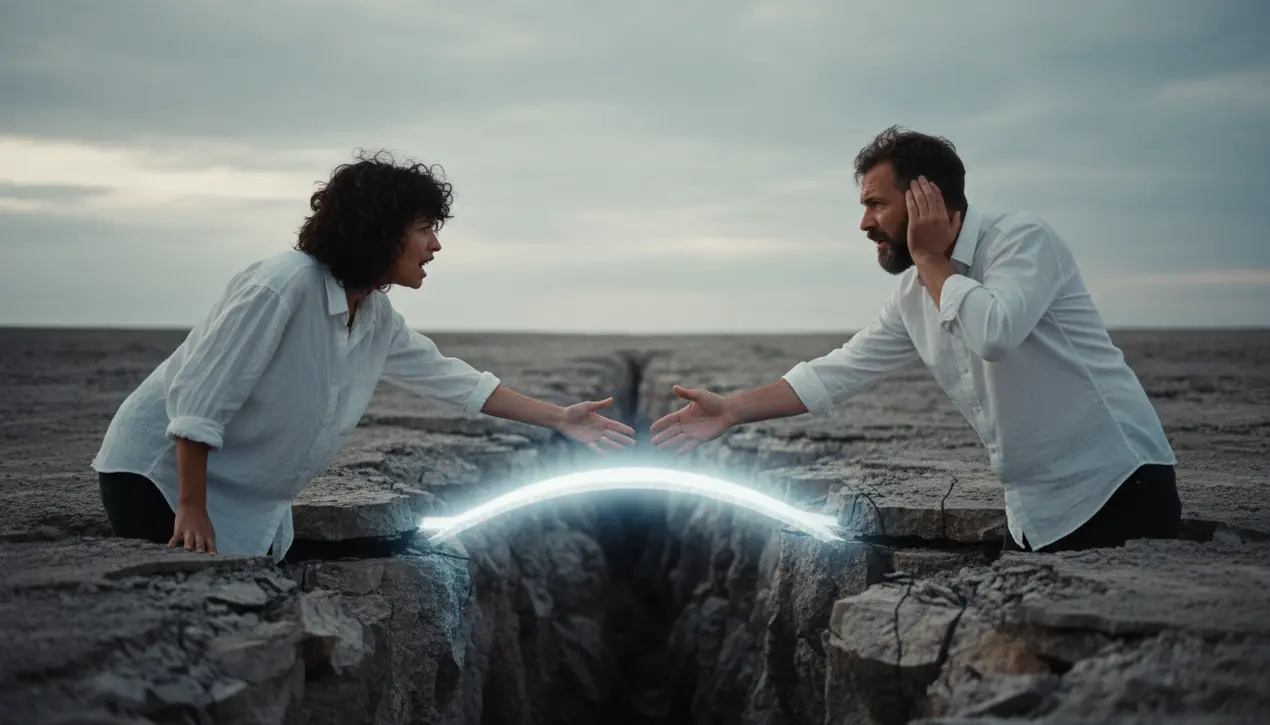
OthereducationEdTech Innovations
The Art of Bridging Realities: A Humanist's Guide to Mending Fractured Dialogue
LA
Laura Bennett
3 hours ago7 min read
It begins with a spark—a connection so electric it makes you forget the fundamental solitude of being human. Then, the inevitable happens: you find yourself clinging to the edge of a chasm, arguing over the nature of the very reality you both inhabit.This is the moment of communicative breakdown, a scene I have witnessed repeatedly in my work with couples and colleagues. The core issue is rarely a simple miscommunication; it is the collision of two separate, yet equally valid, truths.In 1951, against the ominous backdrop of the Cold War, the influential psychologist Carl R. Rogers presented a timeless solution at the Centennial Conference on Communications.His insights, aimed at a world threatened by mutual destruction, cut to the heart of a universal human failing: our profound struggle to listen. Rogers identified the primary obstacle not as disagreement itself, but as our inability to 'see the expressed idea and attitude from the other person's point of view, to sense how it feels to them, to achieve their frame of reference.' This is not a passive act. It is an engaged, demanding form of empathy.Consider Sarah and Mark, a couple trapped in a bitter cycle of financial conflict. To Sarah, Mark's spending was reckless; to Mark, Sarah's budgeting was suffocating control.Both perspectives were valid, forged by their distinct histories of scarcity and abundance. Their resolution did not emerge from a financial planner's spreadsheet.It arrived the moment Sarah articulated the deep-seated fear triggered by a credit card bill, and Mark, setting aside his rebuttal, responded, 'I finally hear how terrifying that feels for you. I never understood it was about safety, not control.' This is the Rogers method in action—replacing defensiveness with psychological safety. Rogers posited that when an individual feels genuinely understood, their defensive posture relaxes.They become less rigid, more receptive to influence, and more likely to evolve. This stands in stark contrast to the performative listening prevalent in political discourse and online arguments, where we merely bide our time until we can speak.Authentic understanding demands the temporary suspension of our own worldview, an act of courageous vulnerability. In our era of intense polarization, from the family dinner table to the global stage, Rogers's human-centered approach is more than a therapeutic tool. It is a radical, unglamorous practice of peacebuilding—the difficult work of spanning the abyss not by conquering in a debate, but by honoring the shared humanity on both sides.
#communication
#psychology
#Carl Rogers
#conflict resolution
#relationships
#featured
Stay Informed. Act Smarter.
Get weekly highlights, major headlines, and expert insights — then put your knowledge to work in our live prediction markets.
Related News
Comments
Loading comments...
© 2025 Outpoll Service LTD. All rights reserved.